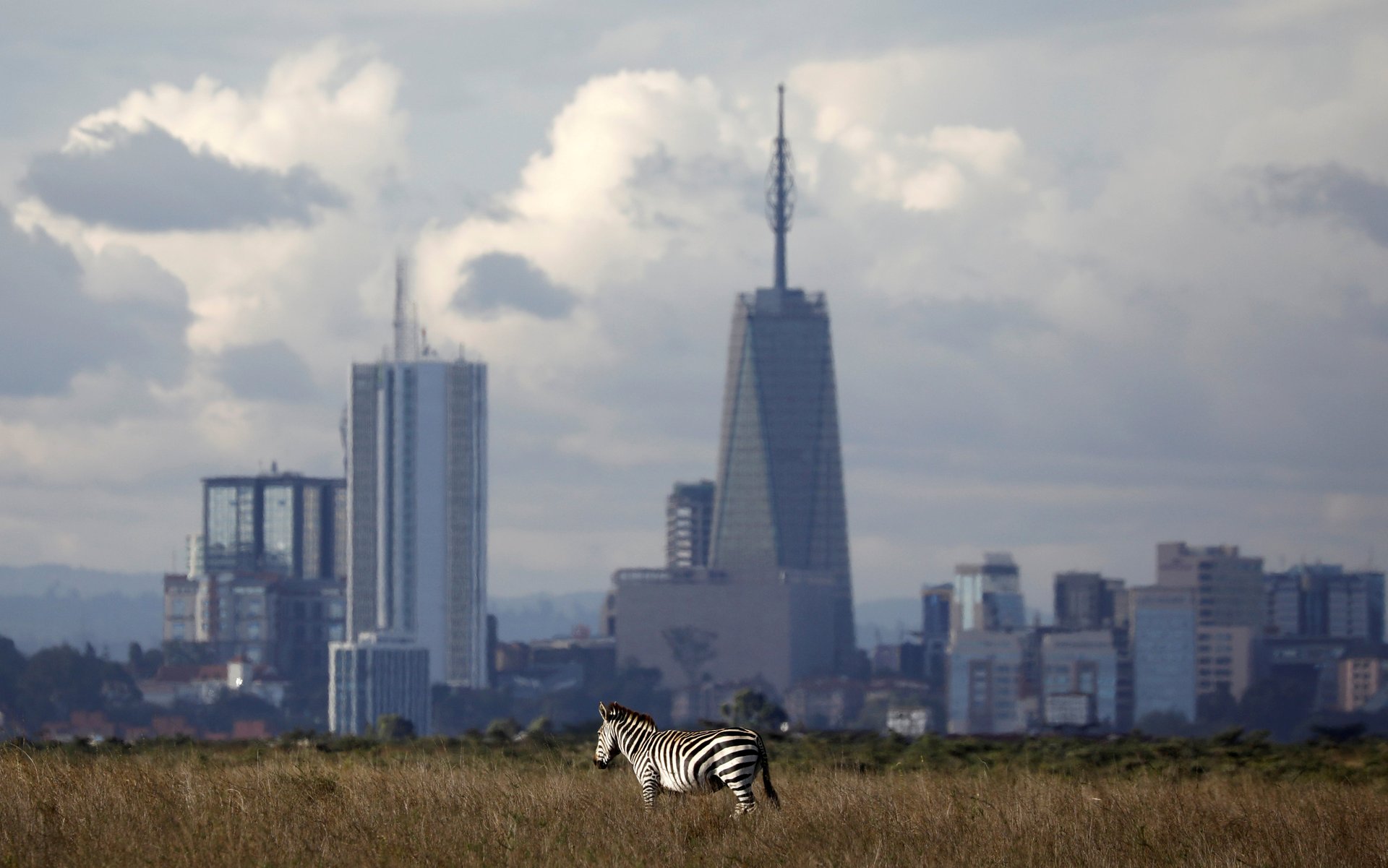Nairobi’s “silicon savannah” just got more attractive to investors and startups
Kenya’s tech startup ecosystem—amongst the hottest on the continent—is looking to attract even more overseas interest as the country launches an International Financial Center and giant tech firms renew their interest in east Africa’s Silicon Savannah.


Kenya’s tech startup ecosystem—amongst the hottest on the continent—is looking to attract even more overseas interest as the country launches an International Financial Center and giant tech firms renew their interest in east Africa’s Silicon Savannah.
The International Financial Center in Nairobi is slated to officially launch in June, offering foreign investors in the financial sector special deals—including taxes and immigration incentives—and space in the new building.
Firms seeking to join the center are required to pay a certification fee of Ksh. 1 million (around $8,620) and an annual fee of Ksh.500,000 (around $4,310), according to regulations published by the country’s national treasury.
Already two firms are on board, according to press releases. British underwriter Prudential Plc announced plans to set up its Africa headquarters in Nairobi, while TheCityUK, which offers financial and related services, has signed a Memorandum of Understanding. (MoU).
Kenya is offering incentives to startups and investors
Startups still in the seed-funding stage will enjoy lower joining fees of Sh100,000 (around $862) and a similar annual fee, for a period of three years, offering the opportunity for foreign investors to more easily enter into seed transactions with early-stage fintech and related startups.
TheCityUK has already stipulated its first area of collaboration with the agency is in the fintech sector.
In the MoU signed between the Nairobi International Financial Center Authority (NIFCA) and TheCityUK, uncovering opportunities to increase funding for Kenyan fintechs was at the top of the agenda.
“Kenya has the opportunity to become a continental leader in fintech and dramatically boost financial inclusion by enhancing the existing ecosystem,” said TheCityUK during a fintech forum hosted from Nairobi, in March. The company will also look to enhance the country’s policy and regulatory framework and support the growth and scaling of fintechs.
The new center’s opening comes only a month after an elevated highway, designed to reduce the commuter time from Nairobi’s airport to its city center and main business areas, opened on May 14. Commuter time from the airport to the Westlands area using the new, tolled, highway—which previously could take hours—has been advertised as just 10 minutes. Kenya has pointed to this and other infrastructure projects as proof of its commitment to making its business environment more conducive for regional headquarters or hubs.
London-based firms are the likeliest to be interested in Silicon Savannah
Startup intelligence firm, Dealroom, in its Europe, Middle East, and Africa (EMEA) Venture Capital Investor prominence rankings 2022, lists London-based firms among top investors with ability to spot and invest in technology unicorns. Kenya is yet to have a unicorn.
Among the firms listed are LocalGlobe that topped in both the Seed and Overall rankings for EMEA— with 14 unicorn seed investments and 11 future unicorn seed investments, with totals of 15 and 19 respectively backed at both stages. Seedcamp and Balderton Capital are other top UK “unicorn hunters.”
According to Dealroom, Venture Capitalists (VCs) more than doubled their investment to $138.6 billion in tech companies across EMEA in 2021, compared to 2020.
Africa: The Big Deal, an Africa-focused database, shows Kenya among Africa’s tech startup ecosystems been breaking month-on-month fundraising records, since November 2021.
“Kenya is on an 8-month winning strike, with some incredible results: in April 2022, start-ups in Kenya raised 83 times the amount they had raised in April 2021,” it said.
Nairobi is recognized as a regional economic hub
With the startup ecosystem continuing to grow and the improved attractiveness of the city as a commercial center, Nairobi’s financial hub rankings stand to gain too.
Last year, Kenya had climbed ahead of eight other financial jurisdictions to make it to the top 100 global financial centers, before it slipped to 101 due to poor performance on fintech towards the end of the year.
Nairobi has long been regarded as east Africa’s economic hub and the city had seen its ratings rise by 21 points since March 2021 to settle at position 98, before sliding back.
Nairobi is now ranked sixth in Africa after Casablanca (53), Cape Town (54), Johannesburg (56), Mauritius (87) and Kigali (99), according to the latest Global Financial Centers Index.
There are still plenty of challenges ahead.
“Africa doesn’t have the right skills at the moment. If the continent must succeed, it must match the supply of labor with demand, especially around the emerging technologies, said Bitange Ndemo, Professor of Entrepreneurship at the University of Nairobi’s Business School.
Despite that, in the first quarter of 2022, global tech giants made concerted efforts to tap into Kenyan talent and business opportunities.
Microsoft launched one of two Africa Development Center (ADC) sites in Nairobi, with plans to hire at least 450 full-time employees, while Google announced it was hiring over 100 employees for its upcoming Product Development Center—the company’s first such facility in Africa.
Giant financial payment solutions firm Visa also launched in the city, with one of its six global Innovation Hubs, while Amazon, which has chosen Cape Town as its continental hub, also expressed intent to launch an Amazon Web Services (AWS) local zone.
In May, real estate firm Knight Frank named Nairobi the only city in Africa that made the top 45 global cities that posted growth in 2021, in its latest Prime Global Cities Index.
This article is republished from bird under a Creative Commons license. Read the original article.